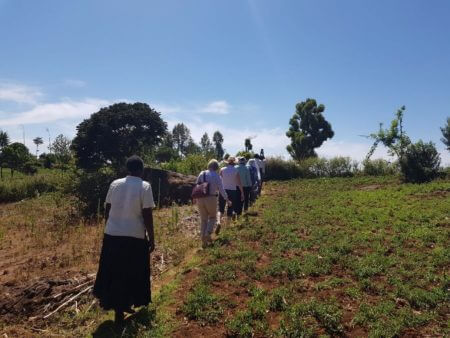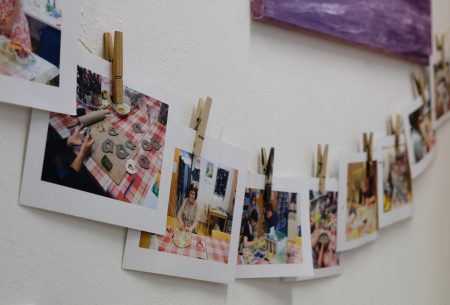The Wellcome Genome Campus Public Engagement team supports public engagement elements of large-scale research projects at the Wellcome Sanger Institute, as Development Coordinator Alena Pance, explains.
Cancer is a disease that has afflicted humanity from pre-historic times; the earliest record of human cancer appearing in an Egyptian papyrus dated 3000 BC. Today, despite a great deal of effort and progress, it still represents an enormous medical challenge. In order to accelerate understanding of and finding of solutions to this disease, in 2015 Cancer Research UK launched a series of Grand Challenges to fund and support a global network of research. The Mutographs project, led by Prof Sir Mike Stratton at the Wellcome Sanger Institute, aims to advance understanding of the causes of cancer by identifying and deciphering the signatures stamped on DNA by the factors involved in its origin and development.
The Mutographs project assembles research teams from the UK, the United States, and France to investigate kidney, colorectal, pancreas and two types of oesophageal cancer. In order to identify these ‘signatures’, the teams study thousands of samples from all over the world* – accessible thanks to the International Agency for Research on Cancer (IARC)’s global network of collaborating research and medical centres – and sequence their DNA. They have chosen to study cancer samples from across the world because the prevalence of specific types of cancer is known to vary in different geographical locations. This puzzle provides an opportunity to uncover the role of different environmental, cultural or lifestyle factors.

Direct interaction with patients is essential for this research, not only in order to be able to collect samples, but also to gather background lifestyle and exposure information that will help the potential identification of causal factors: fostering a collaborative relationship with patients is key to the success for the research.
Patient and Public Involvement and Engagement
‘Patient and Public Involvement and Engagement’ (PPIE) is a term used within academic research settings which refers to a collaborative, reciprocal partnerships being formed with patient and public groups (with elements of the research being done with or by their members, rather than to, about or for them). The aim of this involvement is two-directional: for the science to provide support to patients through better understanding of the disease and the research, and for the patients’ experiences to inform and guide the science.
To do this, the Mutographs team has two patient advocates at the core of the project: Mimi McCord, Founder and Chairman Trustee of Heartburn Cancer UK, and Maggie Blanks, Founder of the Pancreatic Cancer Research Fund. As part of their role, Mimi and Maggie work with the Mutographs Project Manager and the Wellcome Genome Campus Public Engagement Development Coordinator to gain insight into the procedures followed in the collection centres around the world, and devise strategies to further integrate PPIE principles into the research.
“ The Mutographs project is science at the highest level, almost impossible for the average patient to understand, and this is where patient involvement adds the human factor to the science. Hopefully we can put the science and the’ what and why’ into plain English. Patients are fundamental for the project through their specimens and information, and the ultimate goal is to solve the detective puzzle and hopefully save lives. It starts with the human element and ends to their benefit, that is the vision for the future.
Mimi McCord, Founder and Chairman Trustee of Heartburn Cancer UK
Mutographs’ patient involvement work and achievements

To understand fully the processes around patient recruitment and participation, representatives of the Mutographs PPIE team and IARC did field trips to some of the medical centres with particular cancer types of interest. A visit to Kenya – a country with a high incidence of oesophageal squamous cell carcinoma – highlighted the need to establish early diagnosis, for which building trust in medical care and fighting some of the local stigmas about the disease are paramount.

And a trip to the Czech Republic – a country with a high incidence of pancreatic and kidney cancer – revealed a fair and affordable health system that includes freedom of choice of medical specialists, but also inconsistency in how support groups existed for some cancer types but not others. Some persisting stigma about certain cancers and the need of better provision for charities highlighted areas where influence could be helpful.
Lessons learned from these visits, as well as follow-up recommendations, have been presented by Mimi and Maggie to the Mutographs Steering Group and Cancer Research UK. Growing on these, the PPIE team is working closely with IARC to integrate patient involvement into projects from their start, in order to build a stronger relationship with the communities of patients, carers and medical practitioners. Initiatives to feedback to patients the results, knowledge and understanding gained by the research with their participation are also being developed.
And even though the current circumstances brought about by the global pandemic make direct patient interactions almost impossible for the moment, the teams will soon be visiting collaborating centres in Romania and Iran, virtually!
*A detailed account of the collection and processing of samples is the focus of the latest news on the Mutographs website: https://www.mutographs.org/2020/08/17/the-around-the-world-journey-of-mutographs-samples/ .